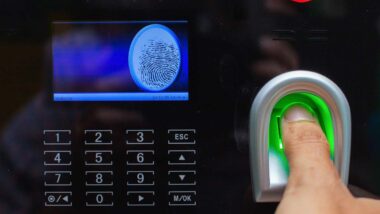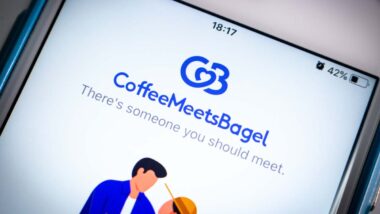Top Class Actions’s website and social media posts use affiliate links. If you make a purchase using such links, we may receive a commission, but it will not result in any additional charges to you. Please review our Affiliate Link Disclosure for more information.
Biometric data class action lawsuits overview:
- Who: Consumers filed class action lawsuits against Papa John’s, Samsung, JPMorgan, Charles Schwab, YouTube, Google and Christian Dior recently over claims revolving around their collection of biometric data.
- Why: Consumers behind the class actions claim the companies violated the Illinois Biometric Information Privacy Act or the California Invasion of Privacy Act.
- Where: The class action lawsuits were filed in either California or Illinois courts.
Consumers recently filed class action lawsuits against companies accused of violating the law by allegedly collecting, storing and using their customers’ biometric data without their consent.
The biometric data privacy class action lawsuits involve claims under the Illinois Biometric Information Privacy Act (BIPA), which regulates what a company must do before collecting biometric data.
BIPA stipulates that a company must first obtain express written consent before collecting any biometric data and provide retention policies and plans to destroy the biometric data eventually.
Papa John’s accused of unlawfully collecting voiceprints of food orderers
Papa John’s faced a class action lawsuit accusing it of violating BIPA by allegedly unlawfully collecting voiceprints and other biometric data from customers placing food orders on its PapaCall automated ordering system.
The consumer who filed the Papa John’s class action argues Papa John’s purports to use the voiceprints it collects to help it improve its AI-powered automated ordering system but allegedly fails to abide by BIPA regulations when doing so.
Samsung Galaxy users argue Samsung unlawfully collected their biometric data
Also this month, a group of 50,000 Samsung Galaxy users argued the company refuses to fulfill its obligations to pay for its part of an arbitration hearing to resolve claims it unlawfully collected biometric data.
Samsung Galaxy users claim the company unlawfully collects their biometric data through its facial recognition technology.
JPMorgan faces pair of complaints accusing it of invasion of privacy violations
JPMorgan Chase also faced a class action lawsuit this month filed by a consumer arguing the company uses biometric security software that analyzes and records customer voiceprints without consent.
The class action lawsuit stems from JPMorgan’s alleged use of lie-detecting biometric security software in its call centers. The consumer behind the complaint argues this violates the California Invasion of Privacy Act (CIPA).
JPMorgan faced a similar class action lawsuit earlier in the month by a consumer claiming it uses software that eavesdrops on customers who call its call centers.
The consumer behind the complaint argues JPMorgan violates the law by using a biometric security program known as “Gatekeeper” to listen to phone calls to help detect and prevent potential bank fraud.
Charles Schwab accused of unlawfully recording and using customer voice prints
Also this month, a consumer filed a class action lawsuit against Charles Schwab, arguing the company unlawfully records and uses the voice prints of consumers without first obtaining proper consent.
Schwab, similar to JPMorgan, is accused of violating CIPA by using lie-detecting biometric security software that examines the voices of consumers who call the company to determine if they are honest.
Walmart faces claims it used store cameras to unlawfully collect customer biometric data
Walmart, meanwhile, was hit with a class action lawsuit in September by a consumer alleging the big box retailer unlawfully collects, stores and uses the biometric data of its customers without their consent.
The consumer behind the complaint argues Walmart unlawfully collects the biometric data of its customers by using cameras and advanced video surveillance systems outfitted in its retail stores.
YouTube accused of unlawfully collecting biometric facial data of users
Also last month, YouTube faced claims it unlawfully collects and stores the biometric facial data of its allegedly unwitting users without obtaining written informed consent.
The consumer behind the class action lawsuit argues that YouTube and its owner, Google, violate BIPA by allegedly not receiving consent to collect the biometric data or providing retention and destruction policies.
Christian Dior unlawfully captures facial geometric information with Virtual-Try On feature, class action says
Christian Dior also faced a class action lawsuit last month accusing it of violating BIPA with the Virtual-Try On feature on its website.
The consumer behind the class action lawsuit argues Christian Dior uses its Virtual Try-On feature to unlawfully capture the facial geometric information of consumers who virtually try on eyewear on its website.
RelaDyne, Google, Kronos agreed to settlements to resolve biometric data violation claims
Several companies recently agreed to class action settlements to resolve claims revolving around collecting and storing biometric data.
RelaDyne agreed to pay $121,000 earlier this month to put to bed allegations it violated BIPA by having its workers use fingerprint time clocks for timekeeping purposes.
Employees accused the company of failing to obtain written consent before collecting their fingerprints.
Last month, meanwhile, Google agreed to pay $100 million to resolve claims it illegally collected and stored facial images while allegedly uploading them to Google Photos to create a database of facial templates.
Consumers accused Google of violating BIPA. The settlement benefits individuals who appeared in a photo on Google Photos since May 1, 2015, and the time of settlement approval.
Last month, Kronos also agreed to a class action settlement worth $15 million. It resolves allegations that the fingerprint time clocks it manufactures violate BIPA.
Have you had your biometric data unlawfully collected and stored by a business? Let us know in the comments!
Don’t Miss Out!
Check out our list of Class Action Lawsuits and Class Action Settlements you may qualify to join!
Read About More Class Action Lawsuits & Class Action Settlements:
- Judge approves nonmonetary Facebook settlement over Android data scraping
- Green Dot unsolicited text message ads $3.3M class action settlement
- Microsoft data breach compromises customers’ sensitive information due to misconfigured server
- Sirius XM class action alleges website not accessible to blind, visually impaired















16 thoughts onBanks, retailers, tech companies allegedly collect voiceprints, other biometric data
I have used YouTube, google Schwab, Walmart, Papa John’s I believe that my privacy has been violated by these companies. Please add me.
Please add me
Add me please
Add me please
Please add me